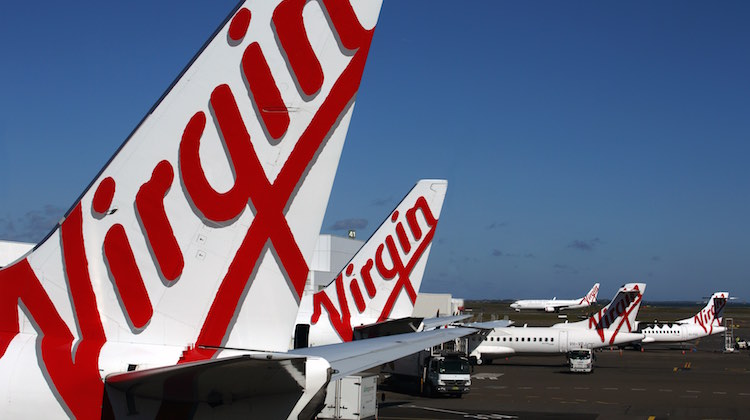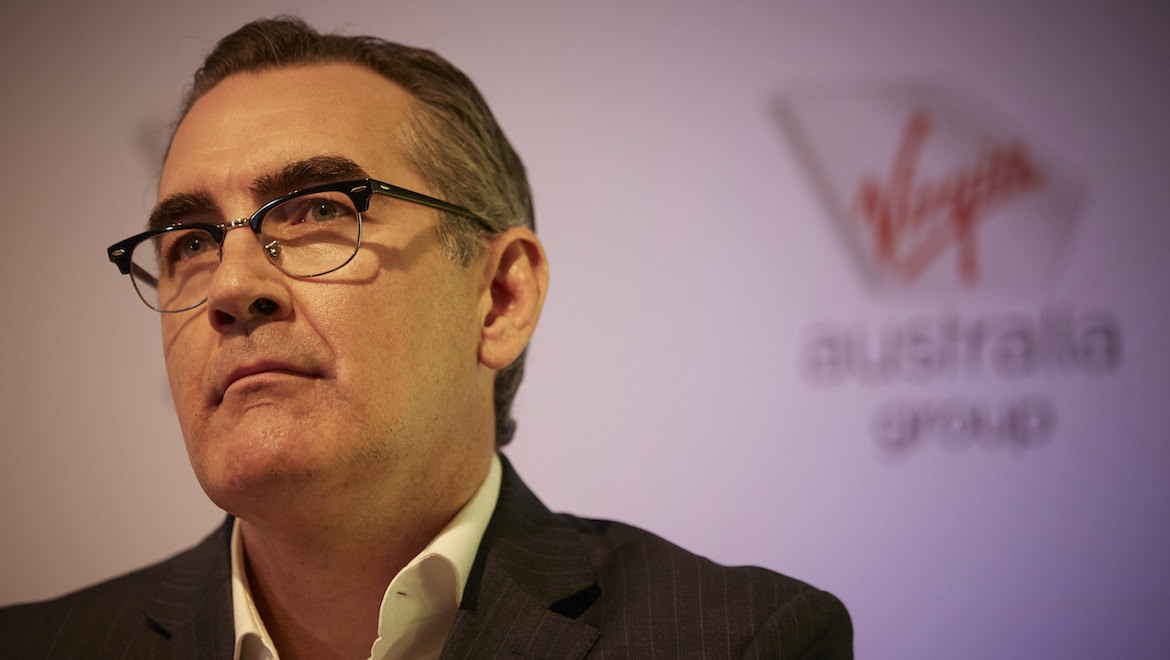
Virgin Australia chief executive Paul Scurrah says the airline group needs to be more resilient after flagging an underlying loss for the full 2018/19 financial year amid rising fuel costs and challenging market conditions.
The company said in a trading update to the Australian Securities Exchange on Friday it expected “underlying earnings to be at least $100 million down on the FY18 comparative result of $64.4 million”.
The trading update said the outlook reflected the uncertainty in the domestic market and a $160 million impact from high fuel prices and foreign exchange movements.
Virgin Australia said demand had weakened in both the corporate and leisure sectors due to to lower consumer and business confidence. Meanwhile, the corporate sector had been slow to recover after Easter due to the impact of the federal election.
In response to the softer market, Virgin Australia said it has commenced a network review and made some immediate adjustments to capacity to better match the number of seats in the market with demand.
While the company did not provide a profit forecast at the half-year results in February, it guided the market to expect revenue for the three months to March 31 2019 to grow by at least seven per cent on the prior corresponding quarter.
However, the May 17 trading update said revenue growth had “moderated throughout the second half” of the current financial year and was tipped to come in at two per cent over the remaining two months to the end of 2018/19.
It forecast revenue of six per cent for the full 2018/19 financial year.
By comparison, revenue increased by 10 per cent in the first half of 2018/19.
“While we have continued to grow revenue, this announcement shows that our business needs to become more resilient to challenges such as weaker demand, high fuel prices and the foreign exchange environment,” Scurrah said in the trading update.
“There is a lot of work being done to develop our new strategy that will help position the group for long-term success.
“In the meantime, we are focused on short-term improvements including capacity and network reductions to ensure we are better meeting current demand from the corporate and leisure sectors.”
Virgin Australia reported an eye-watering net loss of $681 million in 2017/18 as restructuring charges, writedowns and accounting adjustments weighed on the bottom line.
Underlying profit before tax, which removed one-off items and was regarded as the best indication of financial performance, came in at $109.6 million, up from a loss of $3.7 million in the prior corresponding period.

Reductions across domestic and international network
Scurrah told Fairfax Media on Friday there would a 1.5 per cent capacity reduction across the network in May and June.
Virgin Australia said in a note to travel agents on May 16 it was ending flights between Perth and Geraldton from July 21 2019 “in response to customer demand and after an extensive review of its network”.
The route is served with daily by Fokker 100s operated by Virgin Australia Regional Airlines.
Meanwhile, Virgin Australia is also cutting capacity on flights between Australia and New Zealand.
The airline will reduce the number of Sydney-Auckland services to 15 flights a week between July and September, compared with 18 a week currently, New Zealand’s Stuff.co.nz reported on May 15. Its Sydney-Christchurch service would become a seasonal route that operates from September to April.
The revised earnings guidance comes less than two months since Scurrah commenced as Virgin Australia chief executive, having officially taken over from John Borghetti on March 25.
In that time, Scurrah has renegotiated Virgin Australia’s Boeing 737 MAX order to delay the introduction of the next-generation narrowbody until 2021, as well as bring in a new management structure that led to Rob Sharp leaving he company.
In February, Virgin Australia reported net profit for the six months to December 31 2018 of $54.8 million, marking a return to profitability from a net loss of $10.3 million in the prior corresponding period.
Earlier in May, Qantas too noted the weaker domestic demand environment in its quarterly trading update, which showed revenue across the airline group rose 2.3 per cent for the three months to March 31 2019.
“Domestically, demand is mixed,” Qantas chief executive Alan Joyce said.




